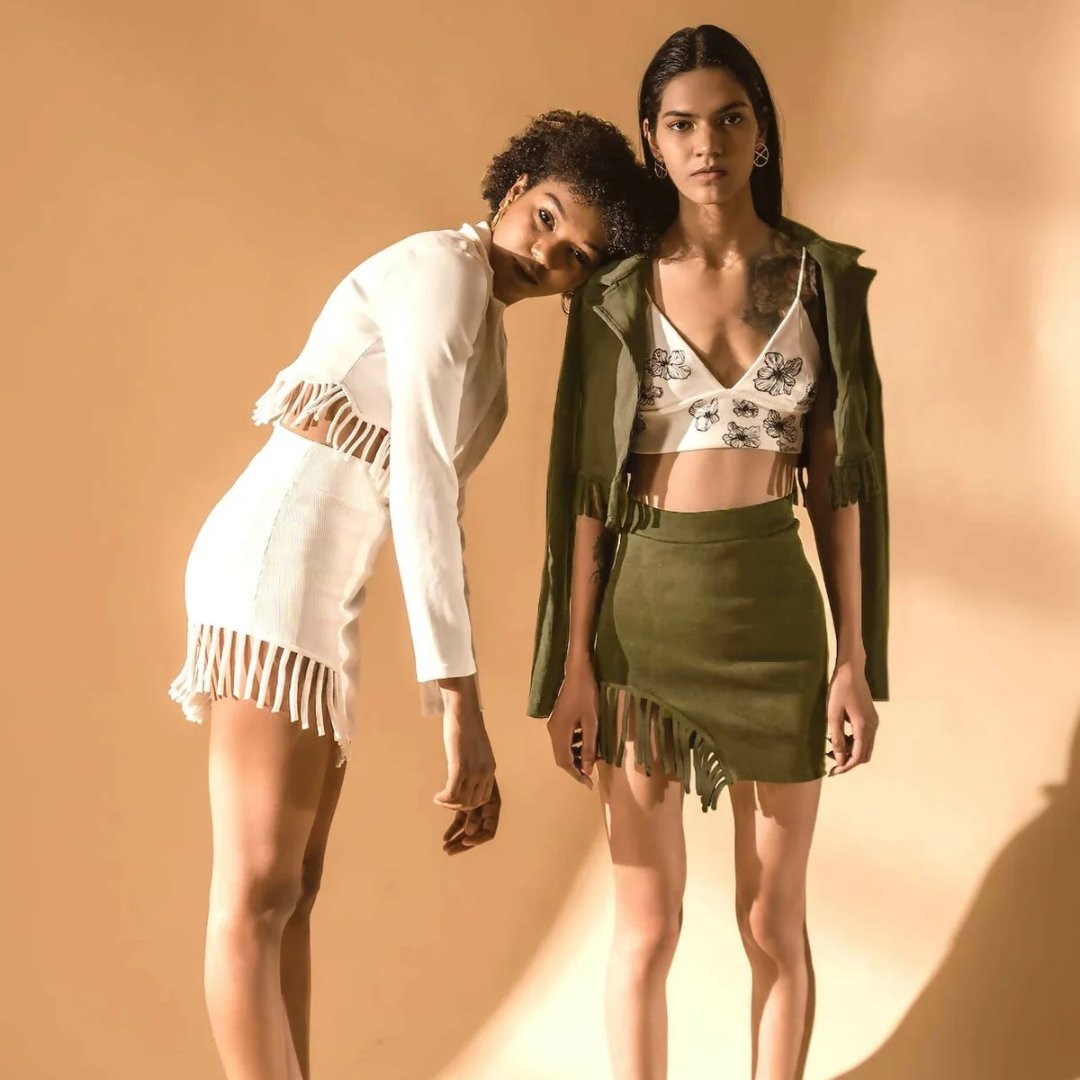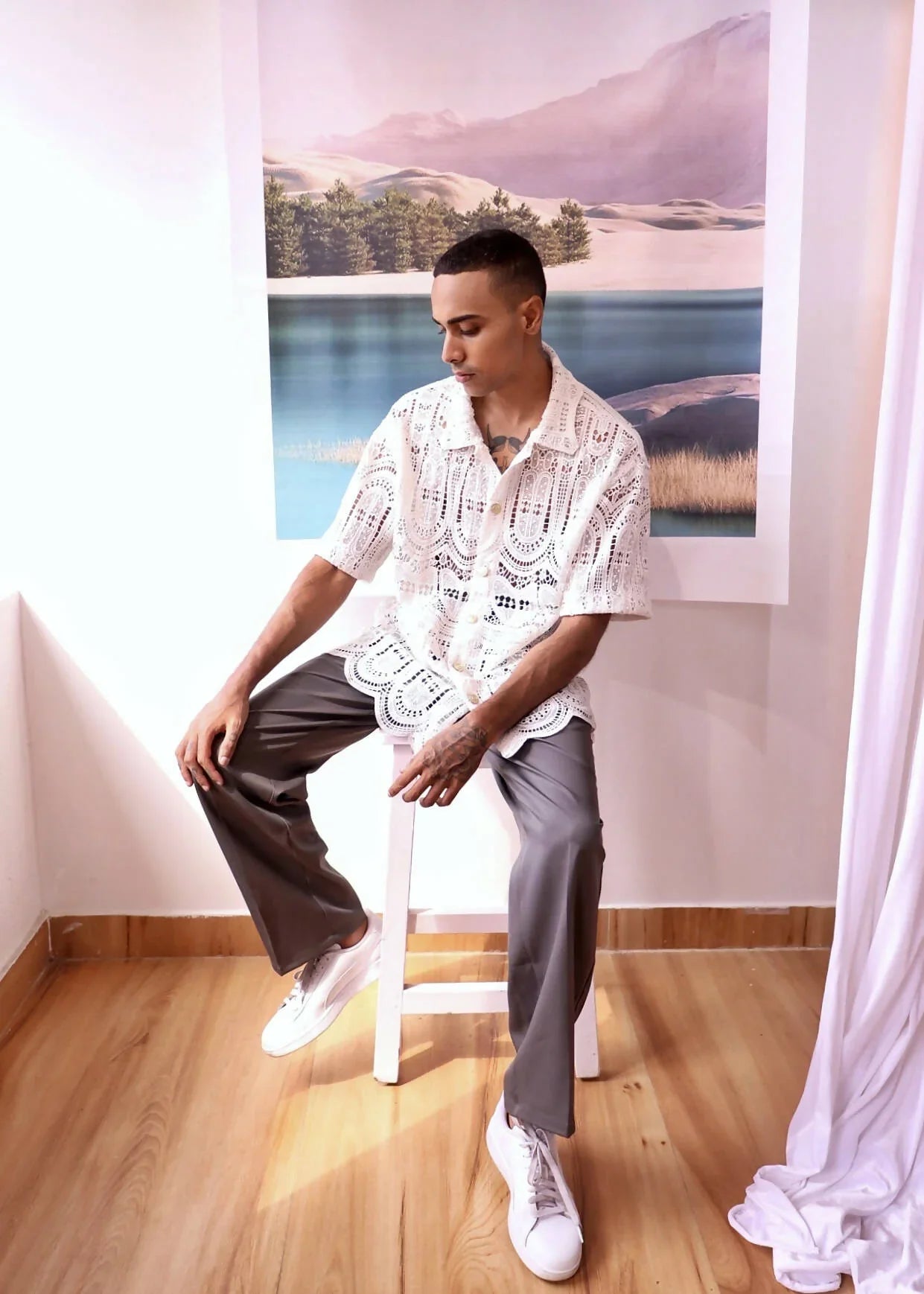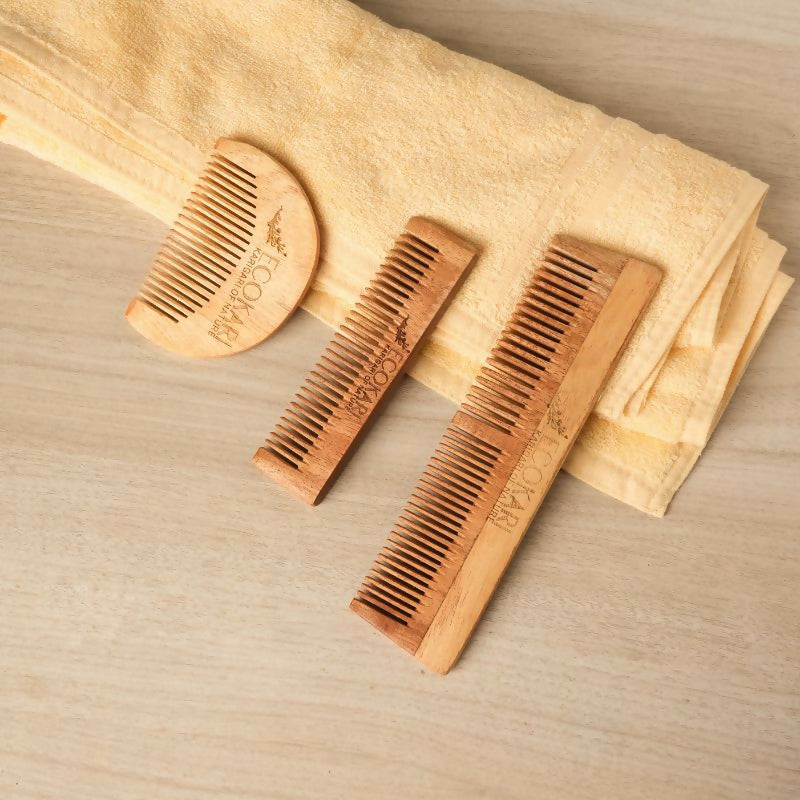Teres - Interview with Alice Salerno
For this feature we interviewed, Alice Salerno, the founder of TERES, a Brazilian upcycling clothing brand. TERES offers trendy upcycled clothes made from pre-loved clothes and fabric scraps. The brand also has a unique credit system which encourages individuals to not just donate clothes to the brand but also choose a sustainably manufactured garment, in exchange, from the TERES catalogue.
Alice spoke to us and shared some wonderful insights about her inspiration for TERES, her unique business model and the sustainable fashion movement in Brazil. Below is a compilation of our conversation.
REFASH: What does the word "TERES" mean? Please tell us how the brand got this name.
Alice: The word TERES comes from my grandmother's name, Teresina. I wanted TERES to be a brand for independent and empowered women who are unafraid of being who they are. So I decided to dedicate the brand to the strongest woman I know and draw inspiration from, my nonna Teresina. She came from a very poor family in Italy and was, in fact, a survivor of the World War II’s atrocities. She not only single-handedly raised my mother but also hugely contributed to my upbringing as well. And it was she who first taught me how to upcycle old clothes - a skill that she had to learn out of necessity due to the challenging financial conditions she grew up in.
R: How did you get interested in sustainable fashion?
A: Around three years ago, I came across some articles in the New York Times wherein I read about the most polluting industries in the world. The articles stated that the fashion industry was ranked as the second most polluting industry, after oil. I then started reading up and learning about the shocking realities of the fashion industry’s social and environmental impact. I knew then this was a cause that I wanted to dedicate my efforts towards.
R: The website mentions that the 3 macro-values inspire TERES's work- circularity, collective uniqueness, intersectional feminism. Please can you share more about why you chose these values? And how do they inspire you?
A: These 3 values are the very reason why TERES exists.
Circularity means that, as a brand, we believe in contributing to a circular economy. At TERES, we produce clothes made of clothes: we create unique pieces by upcycling pre-used clothes. At TERES, we also believe in the circularity of human relationships: our actions do affect others and can ultimately come back to us. It is mainly our call whether we want these externalities to be positive or negative.
Collective uniqueness is a definition that sort of came out of my mind. At TERES, we celebrate uniqueness - of the people helping to build our story, of our clients, and of our pieces. Each of us is unique and has a unique story. But as Aristotle said, we are “social animals”, we live with many other beings. Our uniqueness is therefore intrinsically “collective”. At TERES, we celebrate uniqueness while acknowledging the world around us and our privileges. Sharing those privileges is one of TERES’ funding pillars and goals.
Finally, to explain Intersectional Feminism, I first need to clearly state that, at TERES, we believe fashion is political. The political movement we proudly stand for is that of Intersectional Feminism, a term coined by Kimberlé Crenshaw, an American law professor. She defines Intersectional Feminism as “a prism for seeing the way in which various forms of inequality often operate together and exacerbate each other”. An article by the UN Women further highlights how Intersectional Feminism “centres the voices of those experiencing overlapping, concurrent forms of oppression in order to understand the depths of the inequalities and the relationships among them in any given context”.

( Alice Salerno, Founder of TERES )
R: Is the average consumer in Brazil aware of the sustainable fashion movement? Are they taking the steps towards conscious consumption?
A: Brazil, sadly, is a country with vast inequalities and so it is important to understand that there are very few consumers who can afford to make sustainable choices. Within this small percentage of population, the awareness and appeal of sustainable fashion has certainly been increasing in the last three years. But unfortunately, the average consumer still prefers to buy either cheap clothes from a fast fashion brand or more expensive apparel from a famous international brand. Although I must say that the sustainable initiatives pursued by recognized brands are definitely praised.
R: Why was it important for you to work with leftover materials and make upcycled products?
A: When I look at fashion I see a huge dichotomy. The world does not need more new clothes, there is plenty of that. Still, the reason why we buy new clothes is not always purely consumeristic. Fashion is a powerful means to express one’s true self. But our true self does evolve, so we need new clothes that can better represent us. In my opinion, upcycling is the solution to this dichotomy - it allows everyone to always have “new” clothes, without taking more raw-materials from the earth.
R: Did you have any relevant experience in terms of design, art, fashion, sewing garments or sustainability which came in handy when setting up TERES?
A: I am from Milan and, as clichéd as it might seem, I have always loved fashion. Putting together my own outfit and going through fashion magazines is the only relevant experience that I have with regards to this sector. I am a business graduate, so when I first started this new adventure with TERES I definitely had to get out of my comfort zone and learn about the technicalities and intricacies of deconstructing and re-constructing garments.
R: Please can you share about your design process.
A: In the first months of TERES life we didn’t have an actual design process in place. I was just using my creativity and my knowledge of global fashion trends to readapt old clothes. I typically sketch out the pattern or silhouette that I had in mind and then, Margarida, the first amazing tailor at TERES, would skilfully bring my roughly done sketches to life. We are now starting to better understand what styles are not just easy to make but also appealing to the consumer, and so we are starting to catalogue them and reproduce them accordingly.
R: How are the leftover fabrics/textiles/clothes sourced?
A: TERES gets its raw material from common individuals that want to get rid of some of their clothes. Everyone (for now just in Brazil) can fill in a survey to have their clothes picked up at no cost. For each piece of clothing provided, the individual gains credits to spend on TERES’ e-commerce platform.
( Discover unique upcycled pieces on TERES )
R: How did you devise the credit system? How does it work?
A: As for now, I give the same amount of “virtual money” (to be used as credit in TERES website) for each piece of clothing. I accept both male and female apparel (no accessories or kids’ clothes). I wanted to keep the system very simple and easy to understand. It was important that the system was hassle free because the person providing the clothes can be a potential customer, once they gain the credits. In the future, once I will have reached a fair product - market fit, I plan to evaluate the clothes received based on their weight and type of material.
R: What are some of the challenges you have faced while conceptualising the brand and designing the products? (This could be with respect to sourcing the raw materials, identifying suitable techniques, production, choosing what type of products to create)
A: When I decided I wanted to create “something” in the sustainable fashion world, I was really overwhelmed by all the techniques and business models that could be put in place. While my business knowledge was helpful in deciding what would have been economically sustainable, my complete lack of technical fashion knowledge has definitely been a challenge.
Sourcing raw materials from individuals was also a tricky aspect, as the logistics of the process are complicated.
But the biggest challenge that I continue to face even now is one that is common across upcycling brands - how to scale production when all the pieces that are made are unique. Additionally, it is also imperative to strike a balance between keeping the price affordable for the consumer while being fairly compensated for our design work and the manual work of the tailor.
R: What has been the response of your consumers to your brand story and products?
A: Consumers respond and strongly connect to brands that have a powerful story to tell. Born in April this year, TERES is still a very new enterprise and we have just started to get positive feedback and tractions from consumers. It is great to see how more and more people are recognizing the need of dispatching their clothes in a more efficient and sustainable way.
R: What does sustainability mean to you? How have you incorporated it in your lifestyle?
A: Sustainability is, in my opinion, a holistic word. A sort of “umbrella term” that includes respect for the environment but also for all living beings. Sustainability is about humbly recognizing that we live in a world with limited resources. Although we are individuals we live collectively, and so each of our actions and choices affect other beings.
I personally think that a global movement toward sustainability cannot be solely left in the hands of individuals. It needs to be driven by global institutions, corporations and governments as well. Still, we, as citizens of the world, can and have to make our contribution for a positive change. I try to incorporate sustainability into my life by using my power as a consumer wisely. I try to support sustainable brands, limit waste generation and reduce my consumption of food of animal origin (I am vegetarian). These are some things that I have personally incorporated to live a more sustainable life but I have a long way to go still.
R: What is your vision for the brand and your upcoming plans?
A: My overarching mission for TERES is to shatter the current fashion “standards of beauty” and eliminate the intrinsic racism in this industry.
In terms of vision, I see TERES selling (and procuring “raw-material” from) all around the world. I live in Brazil but I am Italian, and I would love to be able to bring our creations to my home country. I envision having plenty of independent tailors, each with their personal business plans, doing bespoke upcycling of consumers’ clothes. For now, my primary focus is on perfecting and proving the TERES business model and concept, so that it can be further scaled in the years to come.
--
Discover TERES's Website | Instagram.
Read more interviews with the founders of upcycling brands here.
Shop upcycled products here.
-
Photo Credits- TERES







Leave a comment